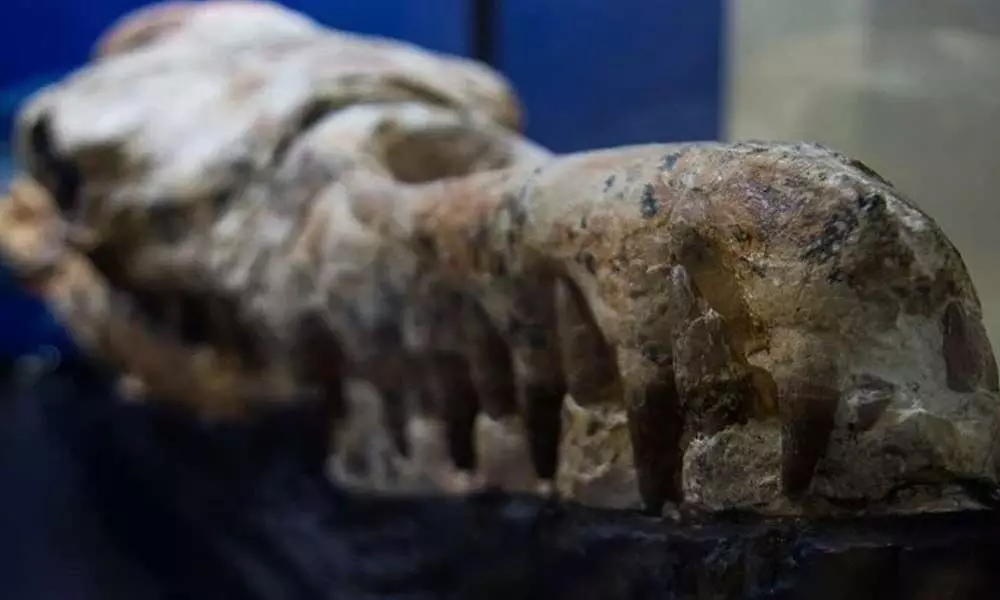Researchers Uncovered Skull With Knife-Like Teeth In Peru's Ocucaje Desert

Researchers Uncovered Skull With Knife-Like Teeth In Peru's Ocucaje Desert
- The skull of a gigantic marine predator presumed to be the ancestor of current whales and dolphins was discovered
- The skull has seemed to be a new species of Basilosaurus that a genus of ferocious marine mammals that resided 36 million years ago
The skull of a gigantic marine predator presumed to be the ancestor of current whales and dolphins was discovered by researchers digging in Peru's Ocucaje desert.
According to researchers from the National University of San Marcos (UNMSM) in Lima, the skull has seemed to be a new species of Basilosaurus thata genus of ferocious marine mammals that resided 36 million years ago throughout the Eocene epoch and is four feet long and lined with knife-like teeth.
The creature was probably around 39 feet long from nose to tail, or around the size of a city bus.For the time being, experts are referring to this ancient creature as the Ocucaje Predator. It won't be given an official name until the researchers publish a scientific description of the creature.
As per the researchers, between 41 million to 34 million years ago, Basilosaurus and its vicious cousins inhabited these oceans as apex predators, flowing through the water with bodies that appeared huge snakes but with a big set of flippers near their heads.
According to Smithsonian, "Basilosaurus" means "king lizard," and the creature's serpentine skeleton was initially mistaken for that of a marine reptile.While according to scientists, Basilosaurus was a mammal, a completely aquatic cetacean like the whales and dolphins that would accompany it millions of years later, reported Sciencealert.
Whale ancestors were once land-based mammals who progressively evolved to become semi-aquatic over millions of years.
They emerged fully aquatic some 55 million years ago, 10 million years after the catastrophic extinction that wiped away the dinosaurs, giving rise to the first cetaceans. There are about 90 species of cetaceans presently.
According to the experts, the Ocucaje desert is rich in fossils, some of which date back more than 42 million years. While other primitive whale ancestors, dolphins, sharks, and other ancient deep species have been discovered in previous digs.
Next Story

















